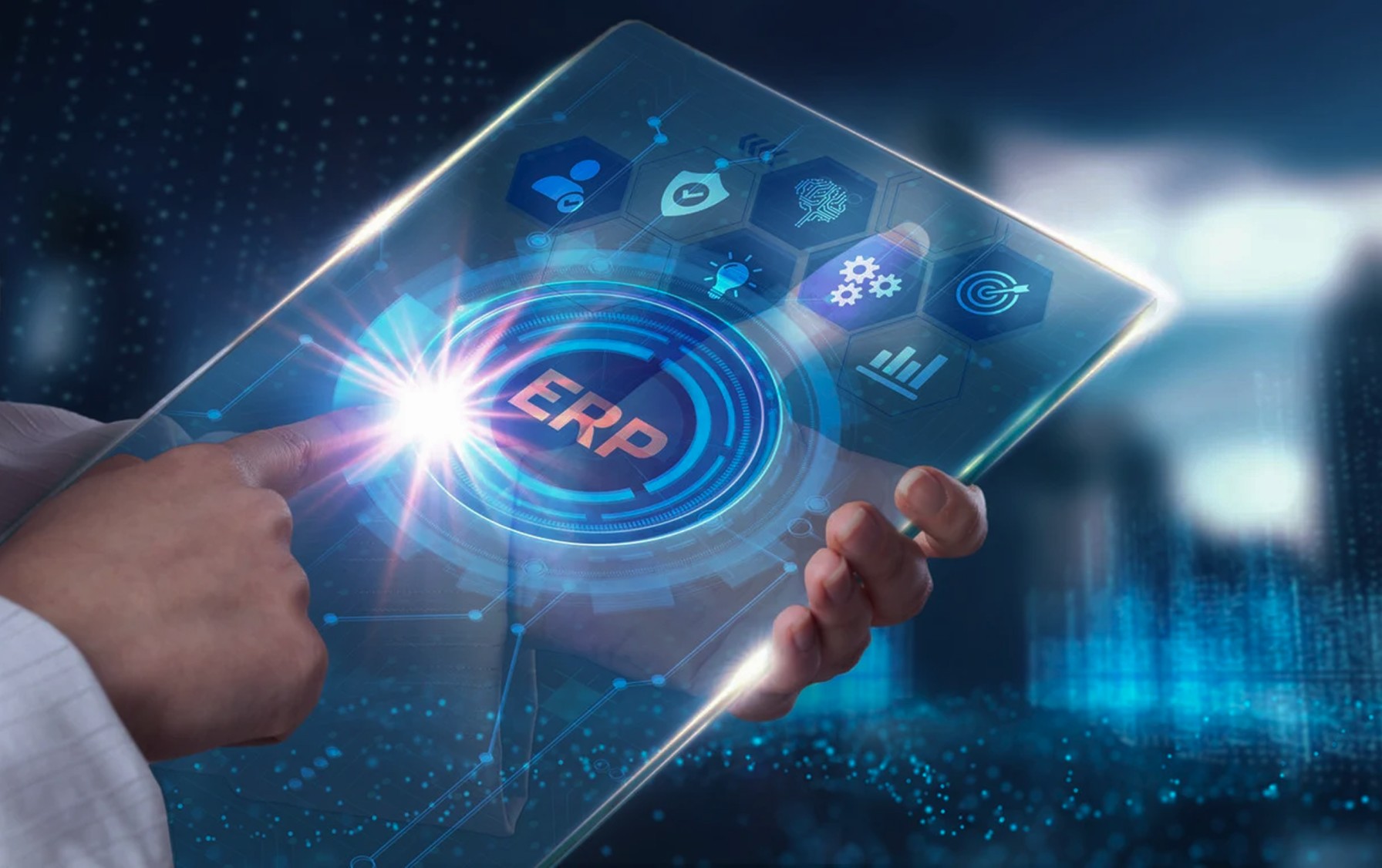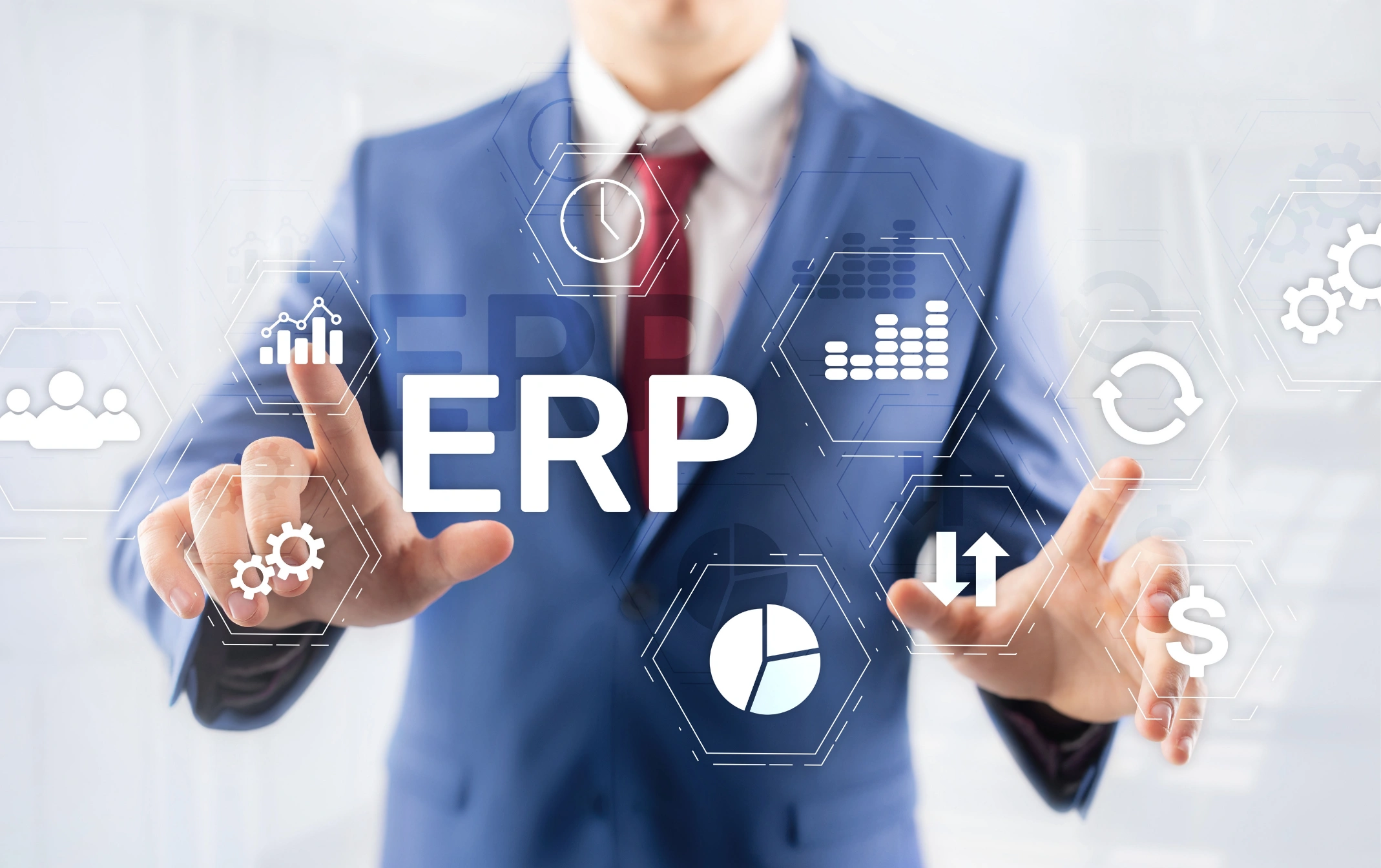Not all businesses require a full-stack ERP system immediately.
However, most expanding businesses eventually hit a wall where discrete tools begin to slow them down.
Sales are on one platform. Billing is handed manually. Inventory is synced “whenever someone remembers.” Lab groups and manufacturing units may even be tracking things in spreadsheets completely separate from one another. It works… until it does not.
“The problem isn’t the lack of data. It’s that your data lives in five different places.”
That’s precisely why ERP software is designed in modules – each one solves a specific operational challenge, whether managing leads, tracking invoices, planning production, or running a diagnostic lab.
This guide is not a roadmap to ERP as a catchphrase. It’s about understanding what each module does, whether you need to add one, and how to assemble a system that fits your size, company, and growth rate.
What Are ERP Modules?
Imagine an ERP module as a smartphone. You don’t possess a single feature but a collection of disparate email, social media, and photo apps. An ERP is the same. It’s a foundation upon which every module or “app” – is an expert application dedicated to one business function.
This modularity is such an advantage, particularly for smaller and start-up businesses. You’re not committing to a dozen things you don’t immediately require. The most significant advantage of a modular ERP is its scalability: you can begin with the ones you use most often and then add more without issue as your business expands. This lets you invest smartly, spending your money on the software that’ll have the most significant impact in the short term.
Core ERP Modules
These are some of the most vital modules that are the key to the success of ERP software in Dubai.
1. CRM & Sales Module
Your sales team is your business’s revenue generation machinery. A good CRM and sales module provides them with the fuel they require. It is not merely a rolodex of contacts but an innovative system to monitor leads, handle pipelines, and follow up automatically. Whether it is a small business or a large team, you need effective sales CRM software. For expanding businesses, the best crm for small businesses can be the difference between chaotic expansion versus an intentional, controlled expansion. Once you install it among the rest of your ERP, you have a full view of the customer experience, from first contact to their payment history.
2. Accounting & Billing Module
A company’s financial health is its lifeline. Our accounting and billing modules are designed to give you complete control and a real-time view of your money. Our ERP accounting solutions automate day-to-day bookkeeping, financial reports, and more, giving you a full picture of your business’s finances. We know that tedious tasks like invoicing are annoying. That is why we also provide invoice automation software that generates professional invoices, sends invoices to clients, and even tracks payment status on your behalf. For every billing firm, an excellent billing software for accountants is required.
Looking to simplify your finances? Discover our billing and accounting services.
Custom ERP Modules
1. Laboratory Module (LIMS ERP)
Accuracy and regulatory compliance are of the utmost importance for companies within the scientific and diagnostic industry. A LIMS ERP (Laboratory Information Management System) module is a very specialised solution that specifically addresses these particular requirements. It assists with tracking tests and samples, as well as regulatory compliance and quality control. Digitalisation enables you to minimise human error and speed up turnaround times. One of the specific laboratory diagnosis management systems is among the main components of the laboratory ERP, which Dubai must implement to attain data integrity and operational excellence.
2. Foundry & Metal Casting ERP Module
The foundry and metal casting sector has specific challenges of its own. How can you trace an order from the quote to the sophisticated casting process? The solution is in a special ERP for the foundry module. It assists you in controlling complicated activities such as raw material costing, heat-wise reporting, and production planning. With reliable foundry ERP software, you can have complete visibility of your operations, resulting in improved quality control and resource usage. An ERP for a metal casting industry gives you an advantage in a competitive market.
Want to revolutionise your operations? Please take a look at our foundry solutions.
Other ERP Modules You Might Need
The advantage of the modular ERP system is that there’s a module for nearly any conceivable business process.
- Retail & POS: Retail companies have a specific Point of Sale (POS) module that can handle your sales, inventory, and customer reward programs in one system.
- Manufacturing: There’s a manufacturing module that assists you in handling production planning, work orders, and quality control so your factory operates as smoothly as possible.
- Warehouse Management: If you have complex stock within your business, a warehouse module enables you to maximize levels of stock, monitor items in real-time, and make logistics easier.
Such versatility of modules has the effect that you can create a system ideal for your business, whether you’re a specialist business like recycling or a large manufacturing company.
Why Modular ERP Is a Smarter Investment
In a competitive market as the UAE, any investment must yield. A modular ERP system boasts tremendous benefits over older, monolithic systems.
- Cost-Effectiveness: You don’t pay for what you don’t need. This implies that you can allocate your resources where they will do the most benefit.
- Less Intimidating and More Incremental Onboarding: Inserting your teams into a full-featured, mature system all at once might be overwhelming. With a modular system, your teams can discover one module and then another, so it’s less overwhelming to transition.
- Grows with You: The great news is that your ERP grows with you. As you grow your business, you can add additional modules to accommodate your changing needs, so your technology never gets in the way.
- In-Built Compliance: ERPs today are not only compliant by design right from the start, from UAE VAT compliance to meeting the rigorous audit needs in laboratories.
Final Thoughts
Finally, an ERP is not software, it’s an investment in your business’s future. With a system designed to use the correct modules, you have unrivalled flexibility, control, and the building blocks of long-term success. At Balanceia, we are experts at delivering these flexible and dynamic ERP solutions. We believe the proper technology should empower your people, simplify your operations, and propel your success in the competitive UAE economy.



